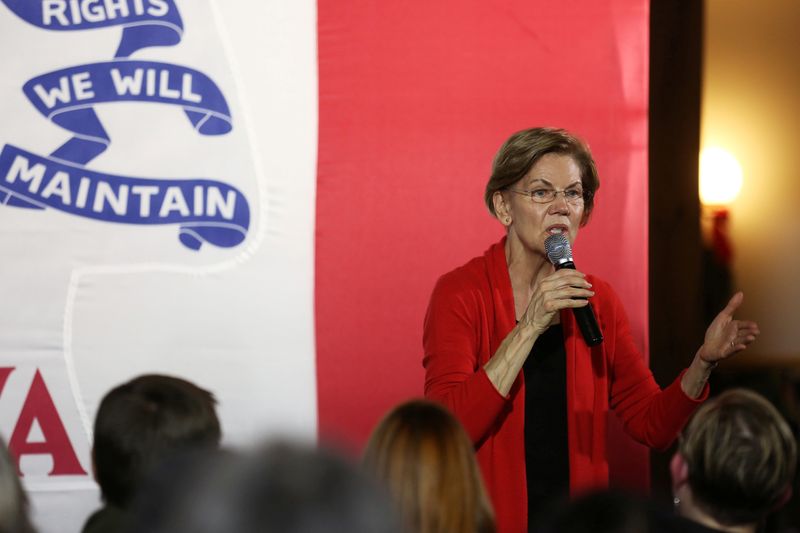Investing.com’s stocks of the week
By Jarrett Renshaw
NEW YORK (Reuters) - U.S. companies would no longer be able to hide behind state laws that allow them to register without disclosing the owner's name under a broad plan to combat global financial corruption unveiled by Democratic presidential candidate Elizabeth Warren on Tuesday.
Warren says billions of dollars in so-called dark money moves around the globe, including in the United States, through shell companies that mask the owner's identity and the source of income. In some cases, this money is used to support terrorism, drug trafficking and to avoid corporate taxes.
Warren, a U.S. senator from Massachusetts, has risen to the top tier of the Democratic primary field on a promise to rein in big banks and other financial institutions who she argues have grown too large and powerful
She is proposing a broad plan that would force greater disclosure in global business and real estate transactions, along with U.S. political spending. She would also seek greater cooperation from other countries in tackling tax evasion and look to hold foreign actors more accountable if they seek bribes from U.S. companies in order to conduct business.
If other countries don't want to cooperate, they will face trade penalties, Warren said.
"Our domestic challenges are compounded by a global network that connects secretive shell companies, complicated trusts, middlemen and enablers that specialize in papering suspicious transactions, and states and countries that profit from a lack of transparency. To truly root out corruption, we must also tackle the flow of dark money around the world," Warren said in a release accompanying her plan.
Under Warren's plan, new federal disclosure rules would require companies looking to do business in the United States - both domestic and international - to provide the owner's name to federal authorities. In several U.S. states, like Delaware, companies can register their companies and provide very little information beyond an address.
In addition, her administration would issue rules requiring U.S. financial institutions to report information about cross-border payments and seek legislation to allow financial institutions to obtain information on the owner of a foreign entity involved in a payment.
Warren will also seek to crack down on the maze of lawyers, banks and other financial institutions that support shell companies and the offshoring of illicit money.
"The flow of dark money puts good governance, the free exchange of ideas, and our national security at risk," Warren said.
